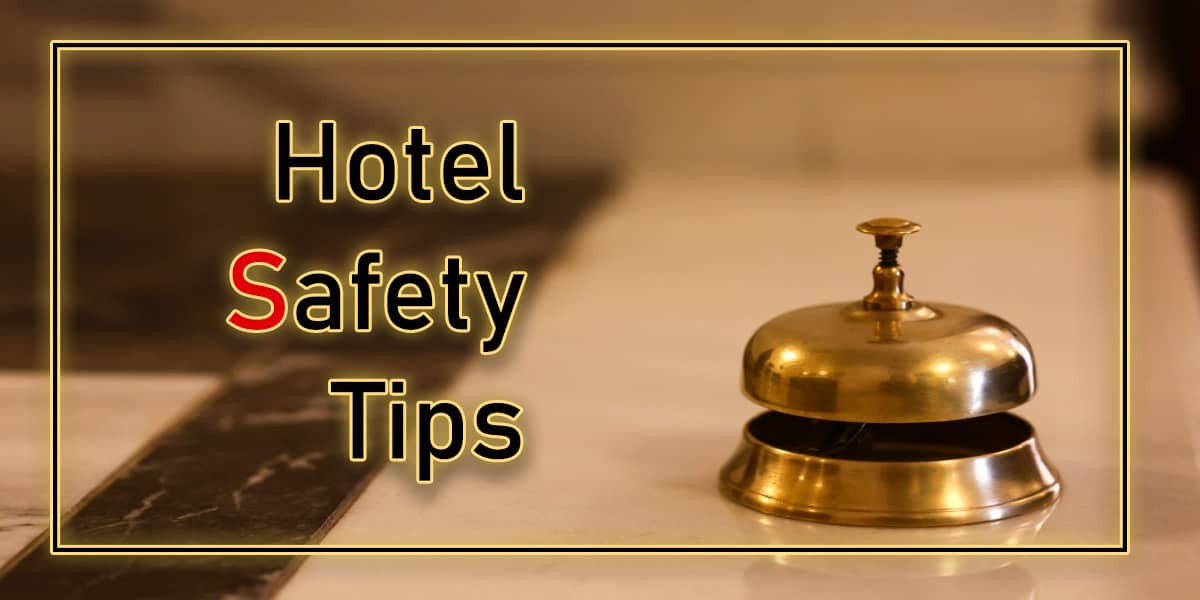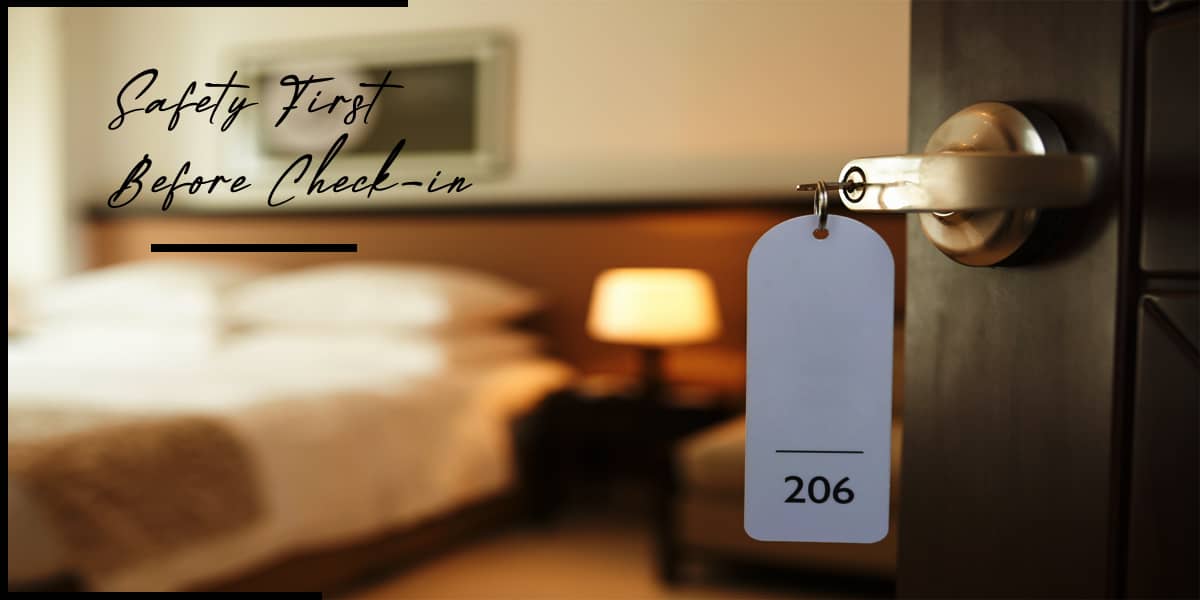Hotel Safety Tips: Precautions to take when choosing and staying in hotels

Hotel Safety Tips: Precautions to take when choosing and staying in hotels
Choosing the right hotel and ensuring your safety during your stay are vital considerations when embarking on a journey, whether for business or leisure. By implementing a few precautions and understanding emergency procedures, you can significantly enhance your overall hotel experience. This article will provide a comprehensive guide on hotel safety tips, covering various aspects such as selecting a secure hotel, room security measures, and emergency procedures.
index
ToggleResearch and Selecting a Secure Hotel
- Read reviews and ratings: Research online reviews and ratings from reliable sources before booking a hotel. Look for positive feedback regarding security, cleanliness, and staff professionalism.
- Location assessment: Consider the hotel’s location. Is it situated in a safe neighborhood? Is it close to emergency services such as hospitals or police stations?
- Hotel security features: Look for hotels that offer security features like 24-hour surveillance cameras, well-lit parking lots, and secure entry points.
Check-In and Room Security
- Request a room on higher floors: Rooms have less foot traffic and are generally more secure.
- Deadbolt and chain lock: Upon entering your room, engage the lock and lock for an additional layer of security.
- Secure your valuables: Utilize the in-room safe or hotel safe deposit boxes to store your valuable belongings, such as passports, cash, and electronics.
- Use a doorstop alarm: For added security, bring a doorstop alarm that emits loud when someone tries to open your door outside.
Fire Safety and Emergency Procedures
- Familiarize yourself with emergency exits: Upon arrival, take a moment to locate the emergency exits on your floor. Knowing the nearest exit could be crucial in case of fire or other emergencies.
- Read the emergency procedures: Review the hotel’s procedures, often provided in the room. Understand evacuation routes, assembly points, and any specific instructions.
- Locate fire extinguishers and alarms: Be aware of the location of fire extinguishers and smoke detectors on your floor. Report any malfunctioning equipment to hotel staff immediately.
- Keep emergency numbers handy: Save important contact numbers such as the hotel front desk, local emergency services, and your embassy’s contact details.
General Safety Tips
- Do not disclose your room number: Be discreet when publicly discussing or displaying your key card to avoid potential theft or unauthorized access.
- Travel with a companion: Whenever possible, travel with a companion, as there is safety in numbers.
- Be cautious with strangers: Exercise caution when interacting with strangers in the hotel or nearby areas. Avoid sharing personal information or inviting unknown individuals to your room.
- Lock doors and windows: Whenever you leave your room, ensure that all doors and windows are securely locked to prevent unauthorized entry.
Internet and Cybersecurity
- Secure Wi-Fi networks: Confirm with the front desk that you are connecting to the official network when using the hotel’s Wi-Fi. Avoid using public Wi-Fi networks that are unsecured and potentially vulnerable to hacking.
- Use a VPN: Consider using a virtual private network (VPN) to encrypt your internet connection and protect your personal information from being intercepted by hackers.
- Avoid sensitive transactions on public networks: Refrain from conducting sensitive online transactions, such as banking or entering credit card details, while connected to public Wi-Fi.
Inspection of the Room
- Check the peephole: Ensure that the peephole on your room door is functional and provides a clear view of the outside. Report any issues with the peephole to the hotel staff.
- Test smoke detectors: Test the smoke detectors in your room upon arrival to ensure they are working properly. Contact hotel staff immediately if any issues are detected.
- Examine windows and balcony doors: Inspect windows and balcony doors for secure locking mechanisms. Report any faulty locks or other security concerns to hotel staff promptly.
Health and Hygiene
- Sanitize high-touch surfaces: Wipe down high-touch surfaces, such as doorknobs, light switches, remote controls, and faucets, with disinfectant wipes or sprays to minimize the risk of exposure to germs.
- Use hand sanitizers: Carry a small bottle of hand sanitizer and use it frequently, especially before eating or touching your face.
- Check cleanliness ratings: Consider hotels with high cleanliness ratings and stringent hygiene protocols to ensure a safe and healthy environment.
Travel Insurance
Before your trip, invest in travel insurance that covers medical emergencies, trip cancellation, and loss or theft of personal belongings. Familiarize yourself with the policy coverage and keep a copy of the policy details with you.
Elevator Safety
- Verify authorized personnel: Be cautious when entering elevators and ensure the person(s) accompanying you are guests or hotel staff.
- Observe suspicious behavior: If you notice any suspicious activity or individuals inside the elevator, do not enter and report it to hotel security or the front desk.
Emergency Lighting and Exit Signs
- Ensure emergency visibility: Familiarize yourself with the emergency lighting in hallways and stairwells. These lights will guide you to safety if there is a power outage or smoky conditions.
- Check the visibility of exit signs: Confirm that exit signs are illuminated and visible from various angles to facilitate a swift evacuation in emergencies.
Staff Identification
If someone claiming to be a hotel staff member knocks on your door, use the peephole to verify their identity before opening it. Contact the front desk to confirm their legitimacy if you need more clarification.
Conclusion
Prioritizing your safety and security while staying in hotels is essential for a stress-free travel experience. You can significantly reduce potential risks by conducting thorough research, selecting a secure hotel, implementing room security measures, and understanding emergency procedures. Remember to stay vigilant and follow these hotel safety tips to ensure a comfortable and confident stay, allowing you to enjoy your trip with peace of mind.
Recent Posts
Contact Us
+1 437 499 4559










